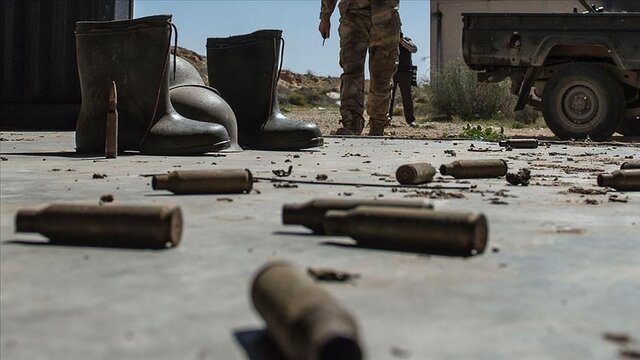What is being described as the failure of the ceasefire in Libya is in fact related to the military conflict that has entered its second year these days and has gone through various stages over the past year; The war, waged by retired General Khalifa Haftar in April 2019 with the promise of seizing the Libyan capital, Tripoli and paving the way for a unified government in the country.
The media refer to this war as one between the two governments in Libya or a war between the West and the East. While occupying several cities in eastern Libya, General Haftar, with significant financial and weapons support from the UAE, Saudi Arabia, Egypt, as well as the green lights and political support of some European states such as France, has launched numerous military attacks and invasions against Tripoli and the surrounding towns.
Nonetheless, contrary to his promises and in contrast to some forecasts in the Western media, he was unable to control Tripoli and failed to deliver on his promises despite significant loss of life and material damage.
In fact, the government of Faez Seraj, known as the government of national unity, managed to prevent the entry of Haftar forces and their domination over Tripoli with the help of paramilitary forces stationed in the Libyan capital city. However, in this regard, the Turkish government played a significant role in supporting Seraj and prevented the fall of Tripoli by the supply of weapons as well as Turkish military advisers to Libya. In addition to Turkey, countries such as Qatar and Italy, as well as some other African and European states support the Seraj government.
The issue of the ceasefire and its establishment is related to the fact that neither side can dominate the other side. On the other hand, the issue of dominating Libya’s oil wells and rich reservoirs is a very important and key issue of dispute and a cause of escalation of differences and particularly increasing rivalry between Western countries and has created special conditions in the country.
At the same time, fierce competition for Libyan oil reserves has been raised in the international arena and extended to the UN Security Council. The new round of rivalries began when the Turkish and Russian governments sought to pave the way for their exclusive presence in Libya under the pretext of a ceasefire. They aimed to forge an agreement between the Seraj and Haftar governments on the pretext of truce and without the knowledge of European governments stabilize their presence in the equations related to Libya.
It was here that a new round of global efforts to establish a so-called truce in Libya began, with Western nations launching a large-scale attempt one after the other under the slogan of the need to establish a ceasefire in Libya to be part of the competition on the Libyan oil reserves.
Therefore, the issue of the need to stop sending weapons to Libya, which was approved by the United Nations about eight years ago, was raised again in the media, but in parallel, the supply of weapons to the two sides involved in Libya also increased significantly; The UAE, Saudi Arabia and Egypt, on the one hand, and Turkey and Qatar, on the other, sent new arms shipments to Libya.
That is why the conflict in Libya has entered a new phase qualitatively. The use of drone bombers as well as other advanced military tools in the conflict between the two sides created a new kind of war in Libya and, according to the military experts, created a new phase of military conflict in the country.
So again, General Haftar personally proposed a ceasefire, and because it was not accepted by the government of Faez Seraj, by tearing the treaty of Sakhirat, he proclaimed himself the ruler of Libya.
However, although General Haftar’s move was not taken seriously by any of the domestic and foreign parties, it is seen as a sign of further divisions between the domestic parties in Libya. In particular, the Seraj government has been able to come out of its defensive position in Libya over the past two months, seizing the cities around Tripoli and forcing a retreat by General Haftar’s forces that had advanced to the outskirts of Tripoli. This success could actually be attributed to the arms shipments and military support of his advocates – advocates who like General Haftar’s backers are in no hurry to end the war in Libya and prefer to sell arms to the country for a long time given its oil revenues, rather than maintain peace and tranquillity.










0 Comments